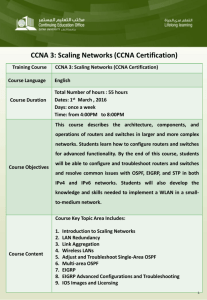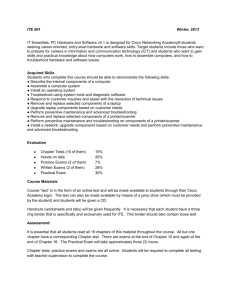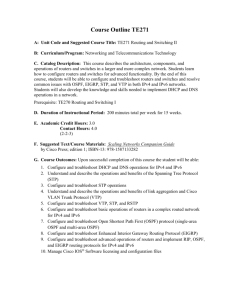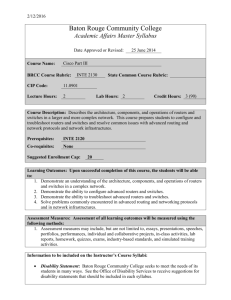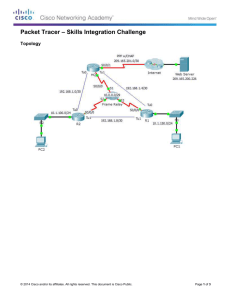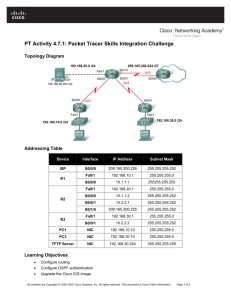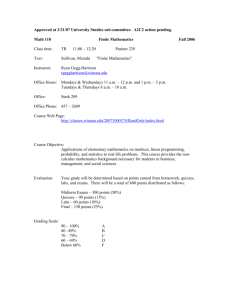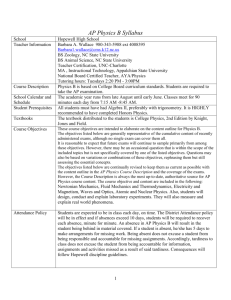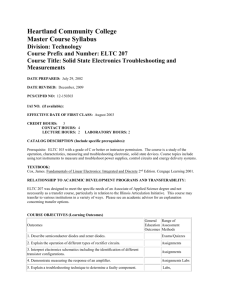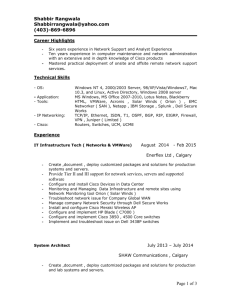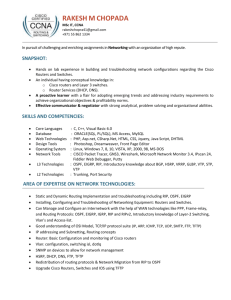NETW123_Oct2013 - Heartland Community College
advertisement
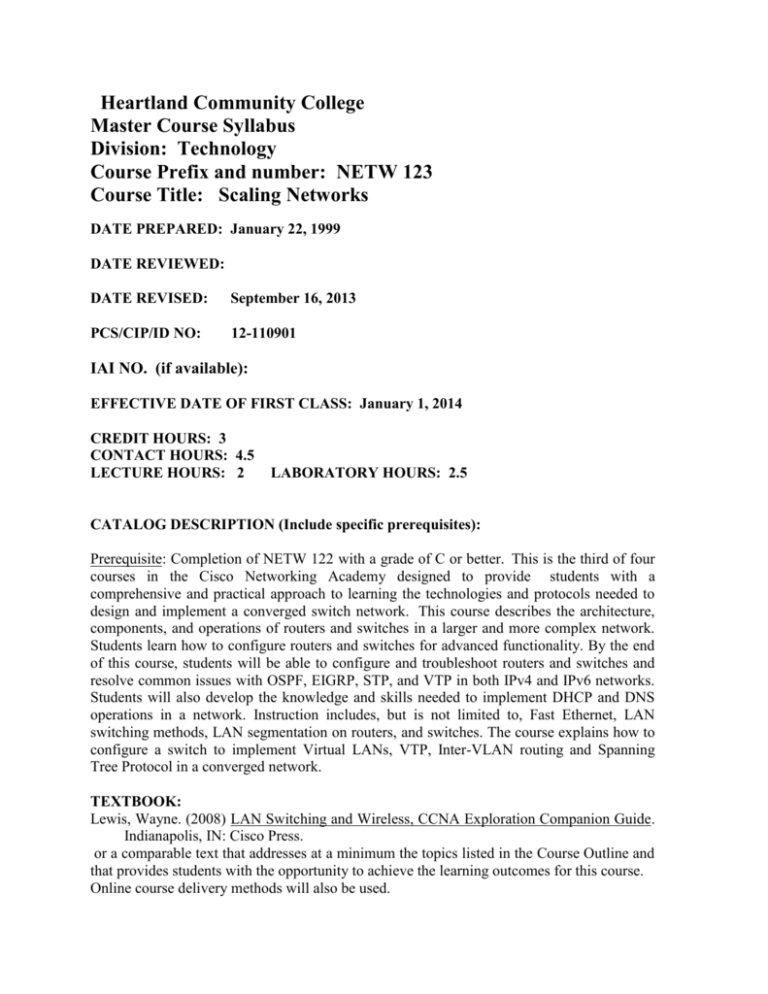
Heartland Community College Master Course Syllabus Division: Technology Course Prefix and number: NETW 123 Course Title: Scaling Networks DATE PREPARED: January 22, 1999 DATE REVIEWED: DATE REVISED: September 16, 2013 PCS/CIP/ID NO: 12-110901 IAI NO. (if available): EFFECTIVE DATE OF FIRST CLASS: January 1, 2014 CREDIT HOURS: 3 CONTACT HOURS: 4.5 LECTURE HOURS: 2 LABORATORY HOURS: 2.5 CATALOG DESCRIPTION (Include specific prerequisites): Prerequisite: Completion of NETW 122 with a grade of C or better. This is the third of four courses in the Cisco Networking Academy designed to provide students with a comprehensive and practical approach to learning the technologies and protocols needed to design and implement a converged switch network. This course describes the architecture, components, and operations of routers and switches in a larger and more complex network. Students learn how to configure routers and switches for advanced functionality. By the end of this course, students will be able to configure and troubleshoot routers and switches and resolve common issues with OSPF, EIGRP, STP, and VTP in both IPv4 and IPv6 networks. Students will also develop the knowledge and skills needed to implement DHCP and DNS operations in a network. Instruction includes, but is not limited to, Fast Ethernet, LAN switching methods, LAN segmentation on routers, and switches. The course explains how to configure a switch to implement Virtual LANs, VTP, Inter-VLAN routing and Spanning Tree Protocol in a converged network. TEXTBOOK: Lewis, Wayne. (2008) LAN Switching and Wireless, CCNA Exploration Companion Guide. Indianapolis, IN: Cisco Press. or a comparable text that addresses at a minimum the topics listed in the Course Outline and that provides students with the opportunity to achieve the learning outcomes for this course. Online course delivery methods will also be used. RELATIONSHIP TO ACADEMIC DEVELOPMENT PROGRAMS AND TRANSFERABILITY: NETW 123 is designed to meet the specific needs of an Associate of Applied Science degree and not necessarily as a transfer course, particularly in relation to the Illinois Articulation Initiative. This course may transfer to various institutions in a variety of ways. Please see an academic advisor for an explanation concerning transfer options. COURSE OBJECTIVES (Learning Outcomes) Outcomes General Range of Education Outcomes Assessment Methods 1. Demonstrate an understanding of the operations and benefits of the Spanning Tree Protocol (STP) Exams/Quizzes and Labs 2. Configure and troubleshoot STP operations. CT2 Labs and Engineering Journal 3. Configure and troubleshoot basic operations of routers in a complex routed network for IPv4 and IPv6. CT1 Exams/Quizzes and Labs 4. Configure and troubleshoot advanced operations of routers and implement RIP, OSPF, and EIGRP routing protocols for IPv4 and IPv6 5. Manage Cisco IOS Software licensing and configuration files. Labs and Engineering Journal PS2 COURSE/LAB OUTLINE: 1. 2. 3. 4. 5. 6. 7. 8. Building a Small to Medium-Sized Network DHCP The Spanning Tree Protocol Link Aggregation Troubleshooting Layer 2 Issues Implementing EIGRP Implementing Multi-Area OSPF IOS File Management METHOD OF EVALUATION (Tests/Exams, Grading System): Exams / Quizzes Journal Labs 45% 10% 45% Grades will be based on the following scale: Exams/Quizzes and Labs A B C D F 90 – 100% 80 – 89% 70 – 79% 60 – 69% Below 60% REQUIRED WRITING AND READING: Required reading consists of online lessons from the Cisco Academy Course Curriculum delivered via the Internet Additional reading and writing assignments on related topics may be assigned by the instructor.
